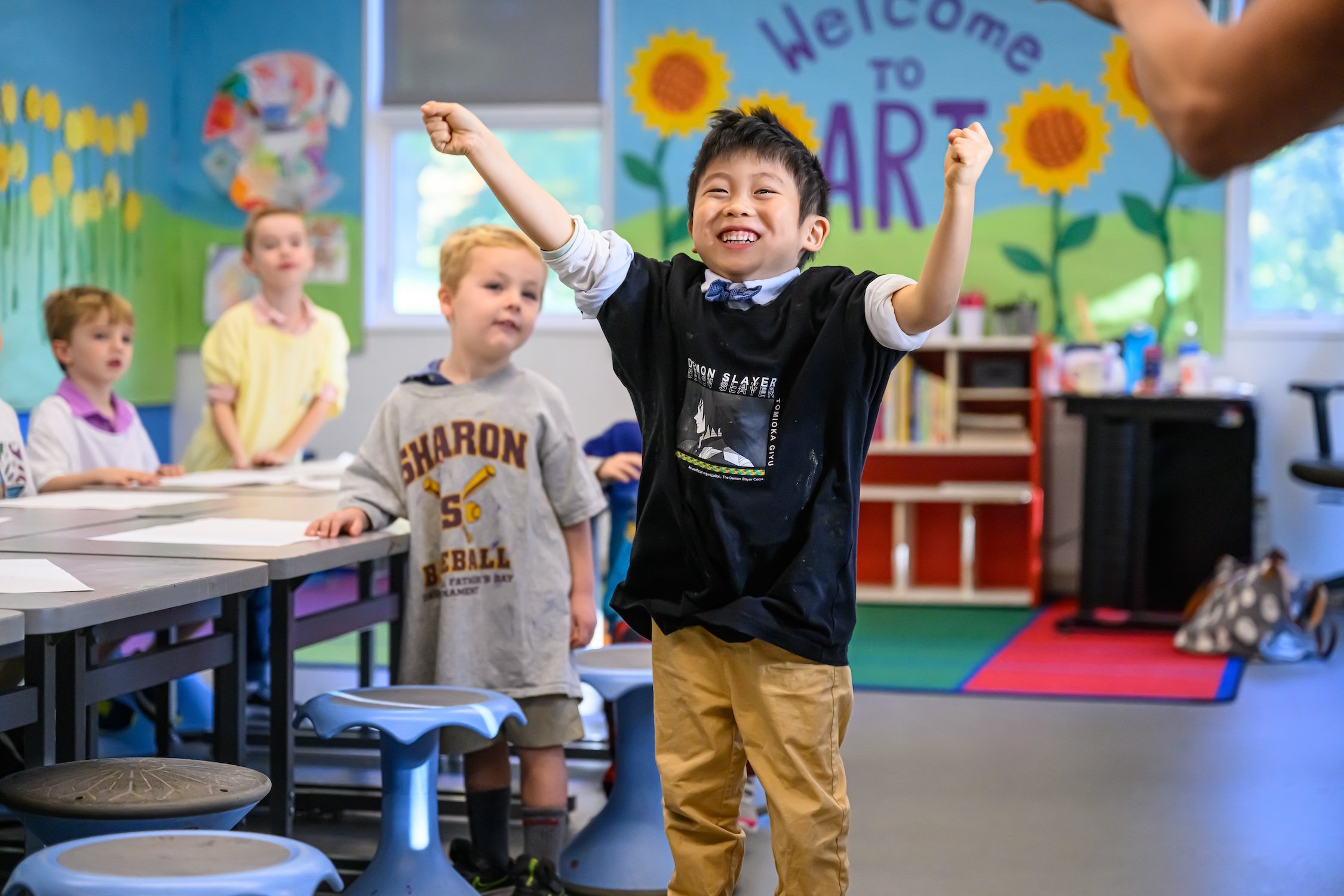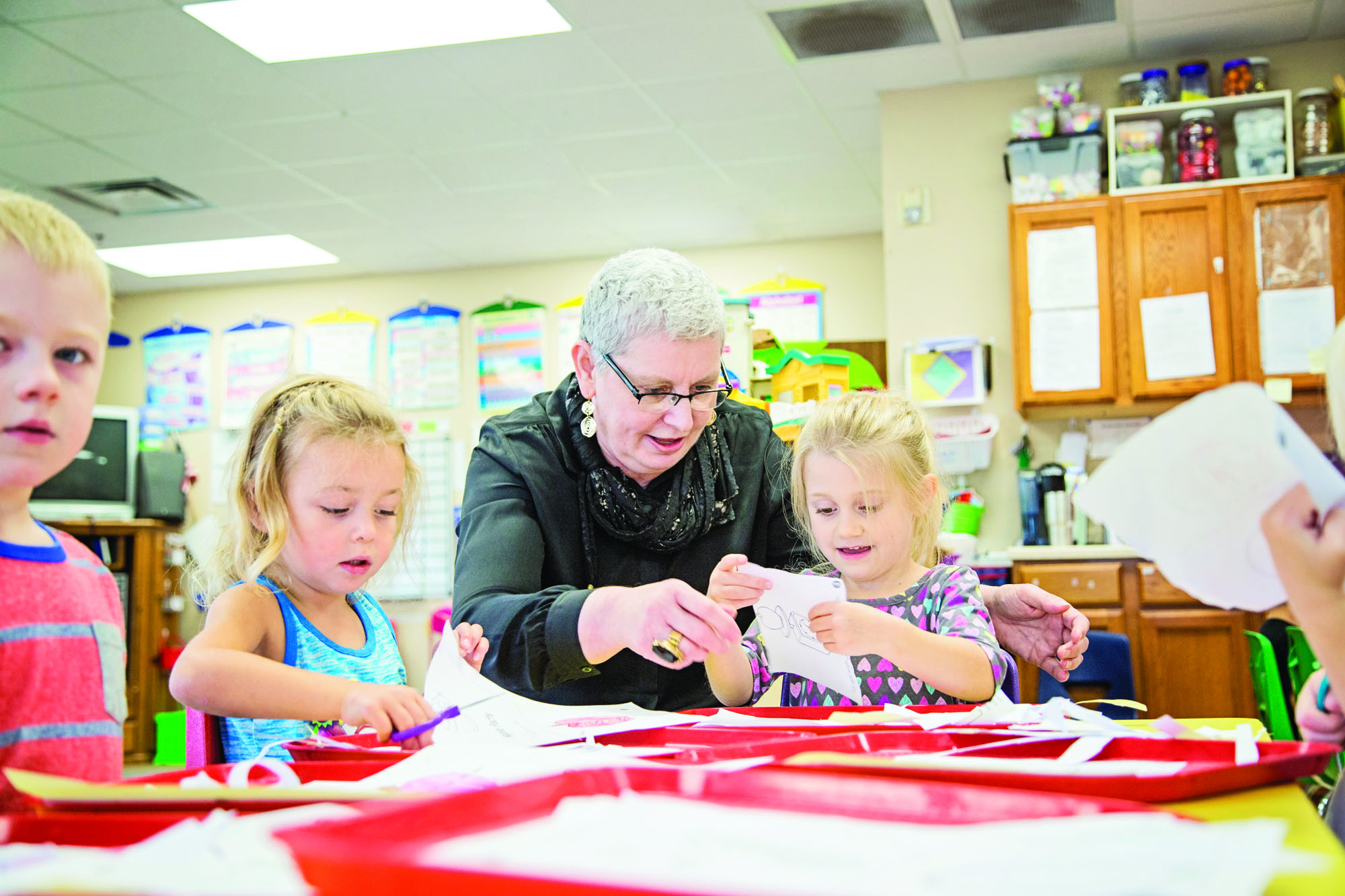Simple outdoor science experiments for Grade School students
Wiki Article
Everything About Elementary School: Vital Truths and Enhancing Experiences for Youthful Learners
Elementary school plays a critical role fit young learners' futures. It includes essential scholastic subjects and supports social abilities with structured interactions. In addition, after-school activities supply possibilities for imagination and team effort. Adult involvement even more improves this foundation, sustaining youngsters in their scholastic trips. As these components link, they create a thorough educational experience. However, what certain methods can educators and parents utilize to maximize this growth?
Comprehending the Elementary School Curriculum
As trainees begin their elementary school trip, they run into a curriculum developed to construct fundamental skills and expertise across numerous subjects. This educational program normally incorporates core areas such as maths, language arts, scientific research, and social research studies. Each subject is structured to grow vital thinking, creative thinking, and problem-solving capacities, essential for future academic success.Language arts concentrate on analysis, creating, and interaction skills, cultivating pupils' capacity to express themselves plainly. Mathematics introduces basic principles, including addition, reduction, and later, reproduction and department, laying the groundwork for much more complex problem-solving. Scientific research encourages inquiry and exploration, sparking curiosity concerning the all-natural globe, while social research studies imparts an understanding of neighborhood and cultural diversity.
Along with core topics, the educational program commonly includes arts and physical education, giving a versatile educational experience that advertises both intellectual and physical development. Grade college serves as an important platform for lifelong knowing.
The Framework of Quality School Education
While elementary school education and learning varies by area and organization, it normally complies with a structured structure that advertises dynamic understanding. Commonly, elementary school includes a series of grades, frequently from kindergarten via sixth or fifth quality, depending on the educational system. Each grade degree matches to details developmental milestones, with educational program developed to build upon previous understanding.Courses are typically arranged into core subjects, including maths, language arts, science, and social research studies, ensuring that pupils receive a versatile education. Direction often incorporates direct mentor with hands-on tasks, fostering involvement and important reasoning.

Assessment approaches differ however usually consist of tests, examinations, and jobs to review pupil understanding. Additionally, instructors typically team up to produce interdisciplinary units, improving the discovering experience. Generally, the structure of elementary school education intends to grow fundamental skills, prepare students for future scholastic obstacles, and advertise a love for discovering that extends past the class.
Social Abilities Development in Early Learners
Elementary school education and learning not only focuses on academic abilities but also plays a substantial duty in the development of social abilities among early students. During these formative years, children engage in numerous activities that encourage interaction, collaboration, and communication with peers. Team tasks and participating learning settings provide opportunities for youngsters to practice sharing, negotiating, and fixing disputes.Additionally, structured playtime cultivates essential skills like compassion and understanding, as kids learn to respond and acknowledge to the feelings of others. Through assisted social communications, instructors assist trainees establish important listening and conversational skills. As children browse relationships and group characteristics, they acquire confidence in their social abilities.
The Duty of After-school Activities
After-school activities play a significant role in improving the academic experience of grade college pupils by providing opportunities for individual growth past the classroom. These tasks permit pupils to discover abilities weblink and interests, fostering creative thinking and self-expression. Engagement in sports, music, art, and clubs grows teamwork, leadership abilities, and a feeling of belonging.Moreover, engaging in such tasks promotes physical wellness and wellness, encouraging pupils to keep an energetic way of life. Private Grade School Peoria. Extracurricular programs additionally function as a platform for students to build friendships and develop social skills, which are essential for their overall development
As pupils navigate their interests outside of academics, they acquire beneficial experiences that add to their self-esteem and durability. Inevitably, these activities play an important role fit all-around people, preparing them for future difficulties both in and out of the classroom.
Supporting Discovering With Parental Participation
Parental involvement significantly enhances the academic journey of grade college trainees, as it cultivates a supportive setting that enhances discovering. Engaged parents add to their kids's scholastic success by attending college events, aiding with homework, and keeping open communication with educators. Private School. This involvement not only improves trainees' inspiration but also cultivates a sense of belonging and self-confidenceResearch indicates that kids whose moms and dads are proactively involved have a tendency to have higher grades, far better presence, and boosted behavior in college. In addition, adult engagement encourages the advancement of necessary life skills, such as time management and duty.
Institutions can facilitate this my explanation participation by organizing workshops, giving sources, and encouraging regular feedback. By producing partnerships in between parents and teachers, grade schools can ensure a detailed approach to pupil advancement. Inevitably, adult participation works as a keystone for fostering a favorable educational experience, profiting both students and the institution community in its entirety.
Frequently Asked Concerns
What Are the Common Grade Institution Hours for Students?
Regular grade college hours for trainees normally vary from 8:00 AM to 3:00 PM, varying by district. Several schools incorporate a lunch break and recess, making sure trainees have time to recharge throughout the day.Just How Do Quality Schools Address Diverse Discovering Demands?
Elementary school resolve varied learning needs through separated direction, tailored lesson plans, and assistance services, guaranteeing all trainees receive proper resources. Teachers collaborate with experts to produce comprehensive environments that cultivate private growth and engagement.What Is the Function of Modern Technology in Grade Institution Education And Learning?
Technology in elementary school education and learning enhances discovering via interactive devices, individualized learning experiences, and access to large sources. It fosters collaboration amongst students and instructors, preparing kids for a technology-driven future while sustaining varied academic needs.Just How Can Parents Help With Homework Successfully?
Moms and dads can aid with research successfully by developing a structured atmosphere, motivating self-reliance, offering resources, and using assistance without straight offering answers. Communication with teachers also improves understanding of assumptions and promotes academic success.What Are Common Difficulties Encountered by Quality College Trainees?
Usual difficulties encountered by elementary school students consist of difficulty with time administration, understanding complex principles, maintaining emphasis during lessons, steering social dynamics, and stabilizing scholastic obligations with extracurricular tasks, all of which can impact their total efficiency.As pupils begin their grade school journey, they come across an educational program designed to construct foundational skills and knowledge across various subjects. Normally, grade college incorporates a range of qualities, commonly from kindergarten with sixth or 5th grade, depending on the instructional system. Extracurricular tasks play a significant duty in boosting the academic experience of quality college students by giving opportunities for individual development beyond the classroom. Parental involvement greatly boosts Learn More the instructional journey of quality school trainees, as it fosters a helpful atmosphere that enhances learning. By developing partnerships in between teachers and moms and dads, quality schools can guarantee a detailed technique to trainee advancement.
Report this wiki page